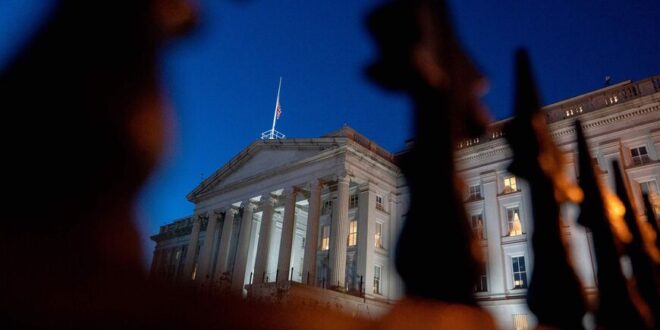The sanctions targeted nine entities the Treasury Department said were involved in producing, shipping and selling Iranian petrochemical and petroleum.
The US Treasury Department on Thursday announced new sanctions targeting Iran’s oil and petrochemical industry as the administration shifts its focus away from reviving the landmark nuclear deal.
The Treasury’s Office of Foreign Assets Control designated nine entities it said were involved in producing, shipping and selling Iranian petrochemical and petroleum, including six Iran-based manufacturers or their subsidiaries. Also targeted with sanctions were firms in Malaysia and Singapore that Treasury said were involved in facilitating sales and shipments on behalf of the previously sanctioned Hong Kong-based broker Triliance Petrochemical Co. Ltd.
Iran’s oil sector has been under heavy US sanctions since former President Donald Trump withdrew from the nuclear agreement in 2018. Absent a revived pact, the Biden administration has pledged to step up its use of sanctions targeting Iran’s illicit oil revenue.
Secretary of State Antony Blinken said in a statement Thursday that the latest sanctions were part of “continued efforts to enforce U.S. sanctions on Iran’s petroleum and petrochemical trade and disrupt Iran’s efforts to circumvent sanctions.”
In November, the administration announced sanctions on 13 companies based in China, Hong Kong and the United Arab Emirates that it said were part of a network supporting the sale of Iranian oil and petrochemicals. It also blacklisted an alleged oil smuggling network accused of generating revenue for the Lebanese militant group Hezbollah and the foreign arm of Iran’s Islamic Revolutionary Guard Corps.
Despite US sanctions, Iran continues to export crude oil to countries including China and Venezuela. Energy consultant SVB International put Iran’s crude exports in December at roughly 1.137 million barrels per day, according to Reuters.
The latest measures come as Tehran violently cracks down on one of its largest protest movements since the 1979 revolution and Washington has shifted its attention from the stalled nuclear talks to holding the regime accountable for its protest repression and provision of armed drones to Russia.
In an interview with NPR published Thursday, Iranian Foreign Minister Hossein Amir-Abdollahian denied that his government had arbitrarily detained tens of thousands of protesters, including journalists.
 Eurasia Press & News
Eurasia Press & News


